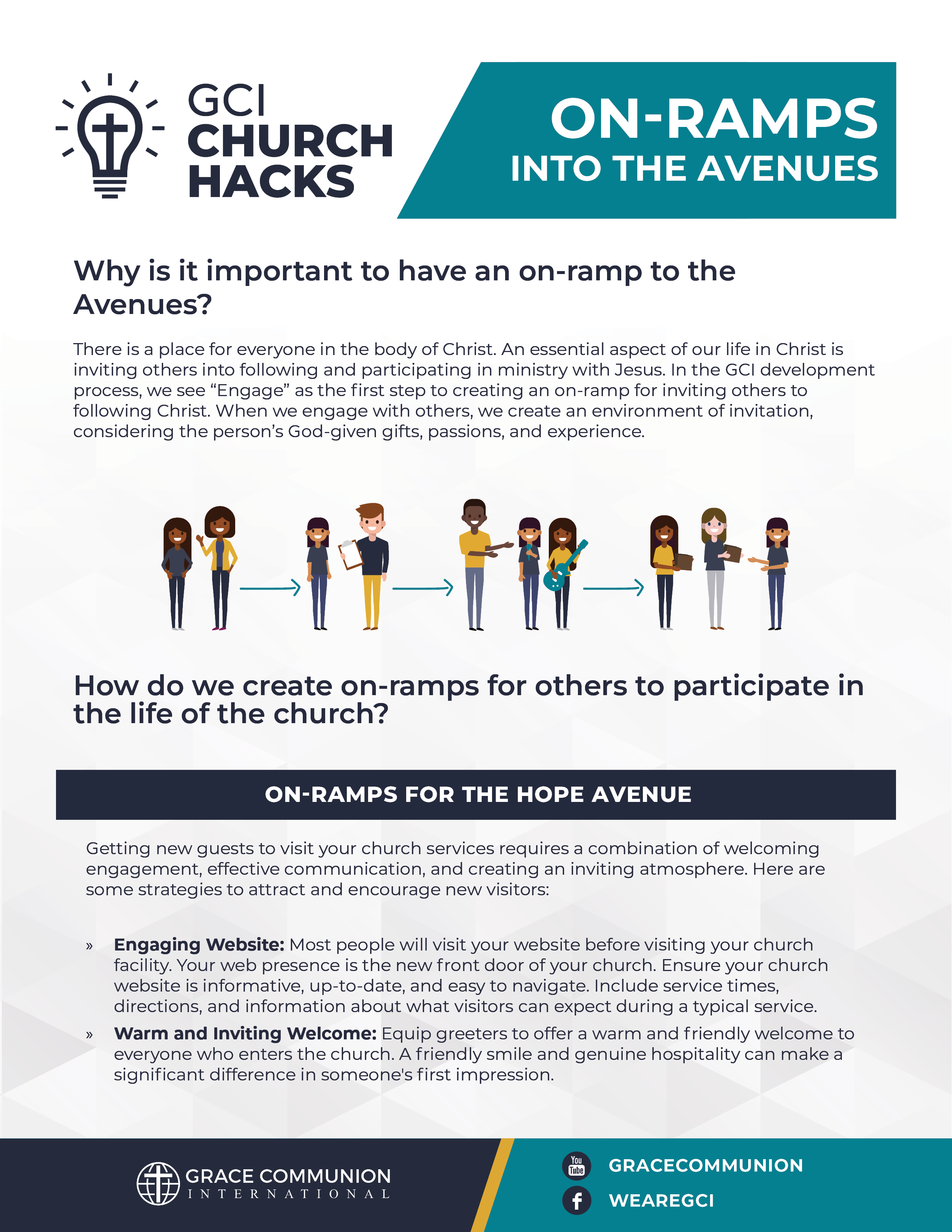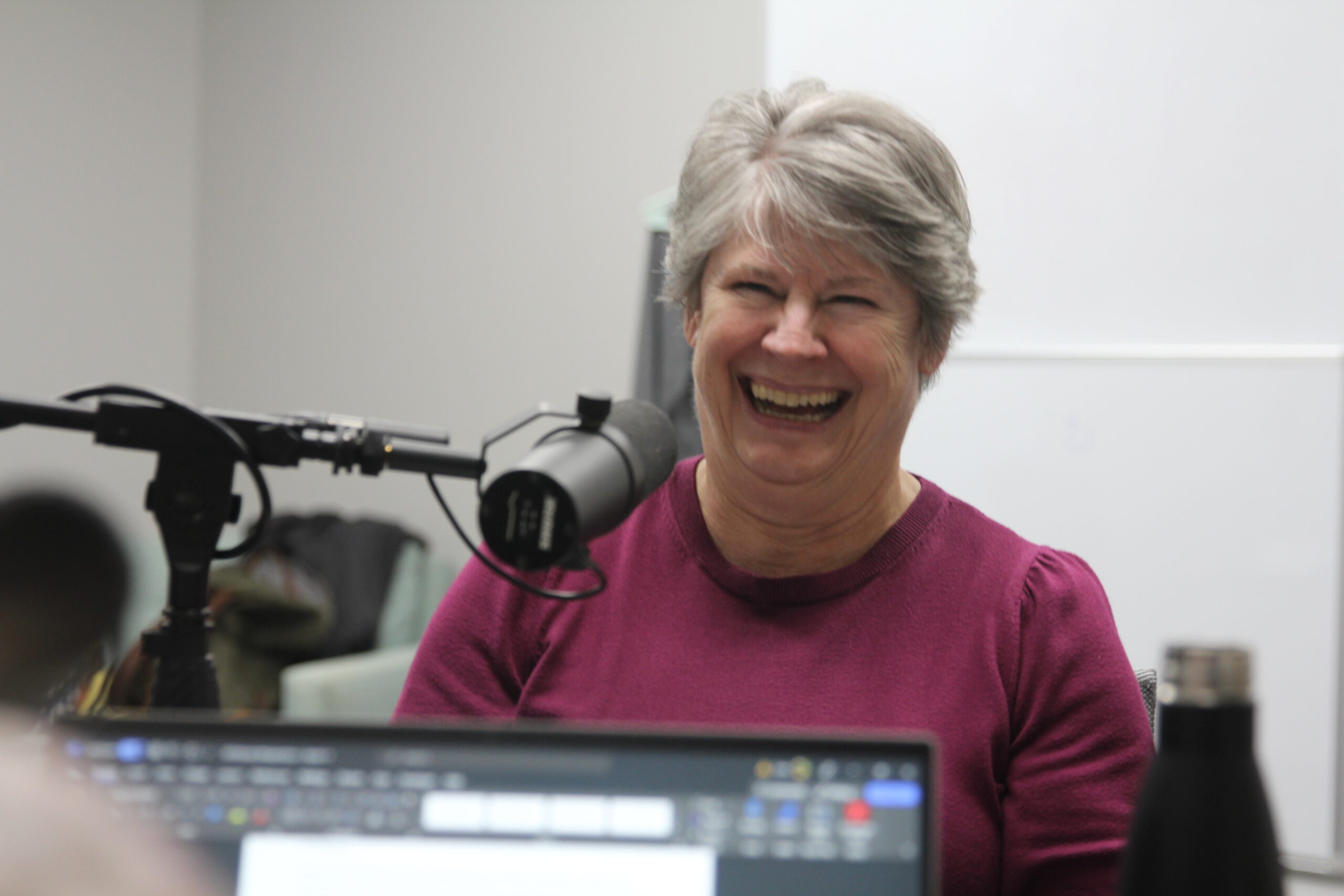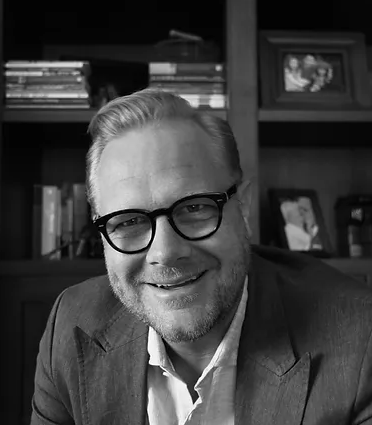Let’s Speak Jesus w/ Chris Green
Welcome to the Gospel Reverb podcast. Gospel Reverb is an audio gathering for preachers, teachers, and Bible thrill seekers. Each month, our host, Anthony Mullins, will interview a new guest to gain insights and preaching nuggets mined from select passages of scripture, and that month’s Revised Common Lectionary.
The podcast’s passion is to proclaim and boast in Jesus Christ, the one who reveals the heart of God, Father, Son, and Holy Spirit. And now onto the episode.
Anthony: Hello friends, and welcome to the latest episode of Gospel Reverb. Gospel Reverb is a podcast devoted to bringing you insights from Scripture found in the Revised Common Lectionary and sharing commentary from a Christ-centered and trinitarian view.
I’m your host, Anthony Mullins, and it brings me great delight to welcome our guest, Dr. Chris Green. Chris is the Professor of Public Theology at Southeastern University and the Director of St. Anthony Institute of Theology, Philosophy, and Liturgics. He’s an author. And he’s authored several books, including Being Transfigured: Lenten Homilies, which I’m reading currently. It’s fantastic. I certainly recommend it to you. Also, he’s written All Things Beautiful: An Aesthetic Christology.
And he and his wife, Julie, live in Cleveland, Tennessee with their three children. and their dog, Auggie. And I know Chris is actively involved in a church plant in that area as well. Chris, thank you for being with us. Welcome to the podcast.
And since this is your first time joining Gospel Reverb, some in our listening audience may not know you. Shame on them, but we’d love to get to know you a little bit, your personal story and how you are participating with the Lord these days.
[00:01:45] Chris: Thank you. Thank you for inviting me, Anthony. It’s good to be in this conversation with you.
Yeah, so my wife and I and our kids, we just moved back to Tennessee. We were both, my wife and I, born in Oklahoma 40 odd years ago. And we were raised there, met there in Bible school, Pentecostal Bible school in Bethany, and then planted a church and started having children. I started doing master’s work and then doctoral work in theology and fell in love with scholarship and the classroom.
And I’ve lived in both of those worlds all of our time together. Sometimes most of the weight has been on the academic side and other times, most of the weight has been on the pastoral side, but I’ve moved both in the parish and in the academy all of our years of marriage.
And this church plant that we’re starting now, it’s a kind of renewal of that pastoral calling for us, for my wife and for me. So, we’re excited about it. And yeah. It’s a different world now than when we planted the first time 20 years ago, more than 20 years ago now. But we feel like kids again in that way. And that’s certainly at the forefront of a lot of our thoughts right now and getting settled here.
We’ve just moved back to Cleveland, Tennessee. We lived here for a few years and loved it and then moved to Florida and then moved from Florida back to Oklahoma during the pandemic. And now we’ve just moved back to Cleveland, hopefully to stay here and settle in. So, it’s been a busy summer, but a good summer, and we’re excited.
[00:03:27] Anthony: I’m in the process of planting a church in Durham, North Carolina, so we need to swap stories at some point, encourage one another. As I understand it, you’re currently writing a book, or maybe have finished, about biblical Christology. And I’m curious, what prompted this book, and from your perspective, why is Christology so vital to our understanding of theology and theological anthropology?
[00:03:51] Chris: So, it’s a part of a trilogy. The first volume was An Aesthetic Christology, where I looked at Christ and the question of beauty. This is a biblical Christology, which is finished. It’s not published yet, but it’s going through the process it’s been submitted. Baylor University Press is publishing this trilogy.
And the title for this book is The Fire in the Cloud of Biblical Christology. And it’s exploring questions of Christology and goodness through the lens of Israel’s stories of travel. So I’m exploring various stories of exile and pilgrimage and expulsion, going out and coming in the story of exile and return as it shows up over and over again in Israel story and asking what those stories teach us about the goodness of Jesus and the goodness he shares with us, and then the last volume, should I get to it, will be a dogmatic Christology.
They’re meant to hold together, right? The three volumes, of course. But to answer your question directly about Christology, I’m persuaded by the Neo Chalcedonian traditions. I’m deeply influenced by Robert Jenson and through Robert Jenson, ancient figures like Maximus, the Confessor and others who stand in that Neo Chalcedonian line.
And for me, Jesus is all in all, all things hold together in him. So, Christology is vital to theology and anthropology because it’s vital to everything, right? Like his life is the life of all things. In the language of John 1, it’s life that was given shape in him, right? That the eternal Son, eternally begotten by the Father, in himself begets life and this life becomes the light of all the light of all human beings. And you know for me, everything is Christological and has to be.
[00:05:51] Anthony: Yeah, I’ve often thought of Christology as the tip of the spear of the theological sphere. Like, we start with Jesus as the exact representation of Father, Son, his Spirit. And thanks be to God that he has God, there’s no other God, but what’s the one we see in Jesus Christ, right?
[00:06:06] Chris: There’s no God behind the back of Jesus that’s contradicting him, right? That wonderful line from Archbishop Ramsey, that in God, there is only Christlikeness and there is no un-Christlikeness at all.
That seems exactly right to me.
[00:06:25] Anthony: Yeah. You know as I’ve been reading through your book, Being Transfigured—even though it’s not the Lenten season, it still seems appropriate to this season of Ordinary Time—but you wrote: This is it. As we are given to behold God in Christ, we cannot help but begin to hold his likeness.
Like, as we walk with him, as we learn from him, to understand his rhythms, to have a Christology allows us to understand who God is and who we are in him, right? And it is so informative.
Let’s get to it. We’ve got five pericopes that we’re going to look at from the Revised Common Lectionary here today.
And we want to start with Philippians 2:1-13, I’m going to be reading from the New Revised Standard Version. It is the Revised Common Lectionary passage for Proper 21 in Ordinary Time, which falls on October the 1.
If then, there is any comfort in Christ, any consolation from love, any partnership in the Spirit, any tender affection and sympathy, 2 make my joy complete: be of the same mind, having the same love, being in full accord and of one mind. 3 Do nothing from selfish ambition or empty conceit, but in humility regard others as better than yourselves. 4 Let each of you look not to your own interests but to the interests of others. 5 Let the same mind be in you that was[a] in Christ Jesus, 6 who, though he existed in the form of God, did not regard equality with God as something to be grasped, 7 but emptied himself, taking the form of a slave, assuming human likeness. And being found in appearance as a human, 8 he humbled himself and became obedient to the point of death—even death on a cross. 9 Therefore God exalted him even more highly and gave him the name that is above every other name, 10 so that at the name given to Jesus every knee should bend, in heaven and on earth and under the earth, 11 and every tongue should confess that Jesus Christ is Lord, to the glory of God the Father. 12 Therefore, my beloved, just as you have always obeyed me, not only in my presence but much more now in my absence, work on your own salvation with fear and trembling, 13 for it is God who is at work in you, enabling you both to will and to work for his good pleasure.
Chris, this is one of my favorite passages of scripture in the entire collection. It’s a sweeping Christ poem. And I’m just curious, what are your Christological thoughts that you would like to share from this text?
[00:09:06] Chris: Yeah, obviously you have the hymn, and maybe I’ll circle back to that, but two comments first to set the table about the very end, this “work out your salvation with fear and trembling.”
I think we can easily mishear that as work out your salvation with a sense of risk, with a sense of the precariousness of your salvation, but that’s not at all what Paul intends. Like this, the language of fear and trembling in Scripture is language associated with the coming near of God.
So, it’s the coming near of God that brings about the fear and trembling. So, this is not anxiety about the precariousness of our standing with God. It is an overwhelmed-ness at the nearness of the God who’s come to us. So, work out your own salvation with fear and trembling is Paul calling attention to the fact that God is at work in you, and he says that explicitly.
We just tend to not notice that the fear and trembling is the natural response to the fact that it is God who is at work in you. And it’s precisely because God is at work in you, that you can work out your own salvation. And this is the Christology, right? That in the communication of attributes in Jesus, where the divine and the human are communing with, in him, because of him.
So that he personally is drawing together all that is divine and all that is human, making it his and then making it ours. We can work out our own salvation because it is God who’s at work in us, right? I sometimes put it this way, it’s a bit simple, but I think it makes the point that salvation is not 100% God and not at all mine, 0% mine.
And it’s not 50 / 50, some God and some me. It is entirely God and therefore entirely mine. That is a 100% God and therefore a 100% me. Which is why in Galatians, Paul identifies self-control as a fruit of the Spirit, as the culminating fruit of the Spirit, that where God is most at work, I am most enabled to be what I know I need to be and want to be.
And I can work out my salvation. We can work out our salvation. Because God is at work in us. So, I think that’s a note about the end of the passage.
At the beginning, Paul says something that’s hard to hear. Do nothing from selfish ambition, regard others in humility, regard others as better than yourselves.
And it’s so easy to mishear that. It’s easy to mishear that and think there was something unhealthy in Paul. It’s easy to mishear that and think we’re being called to practice some kind of subservience or some kind of a way in which we are down on ourselves in order to exalt God. As if God’s glory comes at my expense, my humiliation.
Or that the only way I can live in community is if I’m sacrificial in a way that’s harmful to me. You’ve pastored, and I’ve pastored. We’ve seen these dynamics up close in which there are unhealthy ways of living together in community and there is selfishness, of course. And then there’s also a kind of bad selflessness, a way of not having enough of a sense of self to follow the boundaries that need to be followed.
I think what’s key here, Paul is not calling for any kind of unhealthy domination or subservience. The key is in that call to humility—in humility, regard others as better than yourselves, not humiliation. And this is where I think everything becomes clear in what he says about Christ, that the humility we’re called to have is not the humility that is actually humiliation, in which we get dominated by other people and then call that holy.
But it is to have the character of God so that we can genuinely delight in other people the way that God delights in them, right? The way in which this is the Jesus who washes the feet of Peter, even though Peter protests and says no. I should be washing your feet, right? Peter wants to work in a world in which he knows how the hierarchy functions, like who’s in charge and who’s meant to follow orders.
And Jesus overturns that, right? I’m among you as one who serves. So, this humility of God revealed in Jesus Christ means that God is regarding us as his betters, right? He says the Gentiles lorded over, but I don’t lord it over you. Like, I am among you as one who serves. Who is greater, the one who sits at the table or the one who serves? I am the one who serves, like I’m coming to you.
And they’re overturned by his Lordship and authority in their life. It’s too humble. They can’t track him most of the time because of how humble he is.
So, I think all of that is background for what Paul is calling for here from the Philippians and from us. So those two things said, to come to the hymn then—Bonhoeffer is so helpful on this point, and I learned this from him, that the incarnation is not a humiliation for God, that the incarnation is a revelation of the humility of God. But it’s not a humiliation for God. So, when we talk about kenosis—and I do think we need to talk about kenosis—we don’t need to hear that as God humiliated himself in order to prove something to us or to set an example for us.
The Incarnation is not humiliation. It’s revelation. What’s humiliating—and this, again, I’ve gotten from Bonhoeffer—is death on a cross. But he becomes obedient to the point of death, even death on a cross, and that is humiliating. And he’s willing, in love for us and in solidarity with us, to go to that extent. But that humiliation exposes the wrongness of the world; it doesn’t reveal something essential about God. The Incarnation reveals God. His submission to death, even in humiliation, the shame of the cross, it shows his devotion to us. It shows his absolute commitment to our good. And it exposes the absurdity of the powers of the world. It puts them on display in the language of Colossians.
So, I think it’s helpful to make that distinction. That the incarnation is a revelation of the humility of God. It’s not a humiliation. It’s not undignified of God to become human.
I was teaching last night an old catechism, and I won’t call out the tradition where this catechism comes from because it’s a disaster.
The catechism is …
Anthony: Name it, Chris.
[00:15:53] Christ: No, no, no. It’s part of my own history. It’s a Pentecostal catechism so it’s a part of my own tribe, my tribe’s history. And makes two dramatic mistakes, I think really damaging mistakes, and I pointed this out to my students. The first one is the catechism opens by talking about God but doesn’t talk about Jesus. It has one question about Jesus, but all it says is that Jesus is the Son of God manifested in the flesh, but there’s no theological content to the statement.
And to your point about beginning with Jesus, like when we start to talk about God and Jesus as an afterthought, something has gone terribly wrong. And we’ll keep going wrong all the way through the rest of catechism, because when we come to angels and human beings and sin and redemption and eschatology, if we have misconstrued God because we haven’t seen his glory in the face of Jesus Christ, then we’re going to misapprehend everything else, misconstrue everything else that’s true. That’s exactly what happens.
The other thing that happens in this catechism that I would call out here is that it is specifically seeing this God as being concerned for his own dignity. So, it identifies what it calls God’s moral attributes that constrain his person. So according to this catechism, God cannot do what he personally wills, except by harmonizing, this is their language, harmonizing his moral attributes, which are love, justice, power, and wisdom and dignity.
And dignity—and I pointed out to the students this very passage. And I said, what are we talking about when we talk about God’s dignity if we’re not talking about it in light of Philippians 2? What do we mean when we say God is concerned for his own dignity? Philippians 2 seems to suggest something very different.
[00:17:51] Anthony: Yeah, and when we look at the face of Jesus, we see the Son of God, Son of Man being obedient.
Even to death on the cross, which you pointed out was humiliating. And so, we’re talking about the Son of God’s obedience, but as we live and move and have our being in him, we’re called to obedience. But that, man, that feels like such a prickly legalistic word, especially for somebody like me who comes from a legalistic past, but is it legalism? Tell us more about obedience.
[00:18:25] Chris: It isn’t. There is a kind of pseudo-obedience that is dominating, that does require a kind of subservience from us, a slavishness from us. Jesus’ obedience reveals—and of course we see this in the saints and the prophets, the people of God who are faithful—that obedience is actually joyful.
There’s a chapter in—forgive the self-promotion here, I will have to repent of this sin—but there’s a chapter in Surprised by God book on obedience, in which I try to work this out a bit, that obedience is a source of joy. In fact, it’s the way in which we learn how to be ourselves.
And I draw on in that chapter, I draw on this image, a painting. It’s called, I think it’s called the Banjo Player. And it shows this older man teaching this young boy how to play the banjo. Tanner is the painter. [The Banjo Lesson by Henry Ossawa Tanner] And this boy is standing; the man is behind him. They’re both holding the banjo and the boy’s hands are under the man’s hands. And the man is directing the boy’s hands to the notes that have to be played on the banjo.
And so, he’s being taught a lesson. He’s learning to obey, but he’s not simply obeying his father or grandfather, whoever it is. There’s a way in which the instrument is obeying him and that his obedience to the master, the teacher, is bringing about an obedience of the instrument to his own hands. And what’s coming from that is music. What’s coming from that is joy and dance and life. That’s what obedience is, and of course there are times in which obedience is hard, like the act, you know. It requires we see this in life in Jesus.
This is what’s happening in Gethsemane. Hebrews makes this clear as well, that Jesus is learning through obedience and learning through what he suffers. He’s learning how to obey in ways that bring life to us, but even though that’s difficult, it’s not working against the integrity of his humanity.
And it’s not working against the integrity of his calling. It’s bringing music. It’s bringing joy. And if we can hear obedience that way, that nothing God requires of us is anything but our good, even if in the short run, I can’t see it that way.
And of course, this is to go back to the catechism. Luther’s catechism is so helpful here when he talks about the Ten Commandments. Like when we see what God is forbidding, we need to hear this as what God is making possible for us, right? By telling us “no” to adult adultery, he’s saying yes to the joys of lifelong marriage, right?
These joys won’t come to you unless I forbid those things. So, God is protecting these joys that would be lost on us. So, I think even when we obey, by God telling us, no, you shall not, even that is about learning to play the banjo. It’s about learning to make the music that we actually want to make.
[00:21:40] Anthony: Yeah. That’s so beautiful. For the joy set before him, he was obedient even unto the cross, right? And I again I go back to being Christocentric. We look at Jesus. Who he is, what he has accomplished on our behalf and in us, that he would even die while we were still sick in our sins, in the depth of despair, he would rescue us.
Obedience is just—God, thank you! It really is the Eucharisto. It’s the thanksgiving of his goodness. Of course, we want to please him. Of course, we do. Yeah.
[00:22:21] Chris: Because pleasing God is what brings pleasure in the world, right? So, God is not just one more person in my life that I’m trying to curry favor with. God is the source of all light and all love and all joy and all peace. And when I’m true to God, I’m being true to my neighbor. I’m being true to the world; I’m being true to myself.
Back to that point about where the Spirit is, there is self-control as well as love and joy and peace and goodness and all that comes where the spirit is allowed to abide. And obedience is a yielding to that, right? It’s accepting that in order for this music to be played, I have to play it this way.
But of course, that’s exactly what I want to do. But that is not destroying my will to get his will done. That’s not God’s purpose. My will is formed by being aligned to his will.
[00:23:13] Anthony: Man, I would like to do a whole podcast on this Christological song. It’s so beautiful. But we need to transition to our second pericope of the month.
It is Philippians 3:4-14. It is a Revised Common Lectionary passage for Proper 22 in Ordinary Time, which falls on October 8. Chris, would you read the passage for us, please?
[00:23:34] Chris:
4 even though I, too, have reason for confidence in the flesh. If anyone else has reason to be confident in the flesh, I have more: 5 circumcised on the eighth day, a member of the people of Israel, of the tribe of Benjamin, a Hebrew born of Hebrews; as to the law, a Pharisee; 6 as to zeal, a persecutor of the church; as to righteousness under the law, blameless. 7 Yet whatever gains I had, these I have come to regard as loss because of Christ. 8 More than that, I regard everything as loss because of the surpassing value of knowing Christ Jesus my Lord. For his sake I have suffered the loss of all things, and I regard them as rubbish, in order that I may gain Christ 9 and be found in him, not having a righteousness of my own that comes from the law but one that comes through faith in Christ, the righteousness from God based on faith. 10 I want to know Christ and the power of his resurrection and the sharing of his sufferings by becoming like him in his death, 11 if somehow I may attain the resurrection from the dead. 12 Not that I have already obtained this or have already reached the goal, but I press on to lay hold of that for which Christ has laid hold of me. 13 Brothers and sisters, I do not consider that I have laid hold of it, but one thing I have laid hold of: forgetting what lies behind and straining forward to what lies ahead, 14 I press on toward the goal, toward the prize of the heavenly call of God in Christ Jesus.
[00:24:58] Anthony: I want to know Christ and the power of his resurrection and the sharing of his sufferings.
For Paul, Chris, knowing Christ was the top pursuit of his life, and seems like everything else was rubbish by comparison. And it’s been said that anything we put before Christ in our lives is an idol. Is idolatry just a stuffy biblical concept, or is it alive and here today?
[00:25:25] Chris: Oh, absolutely.
Absolutely it is, right? And I do think it’s when we hear idol as anything we put before Christ, I think there’s a way in which we can use that to not take seriously how idolatry can come into our lives subtly. If we define idols in those terms, you would think that an idol is something that’s getting all of my attention but very often, I think idols don’t take much from our attention. And yet they still get in the way of us giving our attention to Christ and attending to his presence there.
So, I think the image here is of a kind of house filled with idols. Some of them might be taking a lot of our attention. But some of them might not be but they can still inhibit our attention.
They can still keep us from trusting Jesus, taking him at his words. I think it’s important to realize just how beset we really are by images, false images of God that promise what they cannot deliver, right? That these construal’s of God that are actually just our own image projected out, and therefore they promise what cannot be accomplished, right?
Again, these may not dominate our lives in terms of our attention or our money or our desire, but all of those lies about God and all those lies about our neighbors and all those lies about our responsibilities, every one of them has to be shattered.
We have to have those idols cast down, even if they’re not large, dominating figures. Even the small idols can really do a lot of damage in our lives.
[00:27:12] Anthony: I’ve been looking at verses 12 through 14. And by the way, just circling back to what you just said. I do think idolatry is alive and well. And often, it’s Satan coming to Jesus in the wilderness. It appears not as evil, but something good that gets in the way, right? That’s often the way it comes to us.
But looking at verses 12 through 14, I’d like for you just to exegete that. What does it mean that we haven’t obtained it or Paul hadn’t obtained it? Is salvation not ours? What’s Paul driving at here?
[00:27:52] Chris: Yeah, so he’s, I think, clear that what he wants is to know Christ so completely that his life and Christ’s life become indistinguishable, which means he has to die like Christ died and be raised from the dead in that same resurrection.
And I want to become like him in his death, if I may attain the resurrection from the dead. This is not something that Paul can experience in his life. It has to be finished for him to experience the fullness of it. And that’s why he’s saying, I haven’t obtained it.
Not that his salvation is at risk of being lost. Not that he’s precarious in his standing with God. Again, that’s back to the point about fear and trembling where Paul is not anxious for his own salvation. What he’s desiring is a complete conformity with Jesus, to be completely shaped to Christ and fully united to him. And that means the whole of Paul’s life has to be lived, it has to be finished in order for that whole reality. That is Paul’s life then to be taken up into God.
And this is, I think, why we need a deeper, broader theology of Resurrection. Resurrection is not the next thing that happens to Jesus after he dies, the next point on a timeline. Resurrection is something that happens to the whole life of Jesus, that entire life from conception to death. That entire life is taken up into God as the Word by which all things hold together, the order that gives meaning to history. And if we have a fuller, deeper understanding of Resurrection, then you can see why Paul’s life has to be completely lived before he can be fully conformed to Christ.
His whole life has to take on that shape. So he can’t have accomplished it yet. He’s still alive, right? But he does say, there’s one thing I have already laid hold of and that is, I’m moving toward that. I’m moving toward that heavenly call. That is a sharing in Christ’s ascension. A sharing in the coming up into Christ’s ruling and reigning.
So the heavenly call here is not just die and go to be with Christ in heaven. Although it is certainly that too—to be absent from the body is to be present with the Lord, as he says elsewhere. But it is to share in the work of Christ in the heavens. So the prize here is the call to come to share in Christ’s glory and power, to be enthroned with him to be coworkers with him.
And that’s what Paul is desiring. He wants to fulfill that purpose.
[00:30:54] Anthony: Yeah, you’ve given us a fresh way to think of the Incarnation. And I know Thomas Torrance did great work on this as well, that his whole life, the whole life of our Lord Christ was working out our salvation. It was the atonement, yes, we see it vividly at the cross, but it began throughout the entirety of his life. He was renewing all things.
[00:31:03] Chris: That’s right. And one way of thinking about it is the cross is the intersecting point at which that all of that is integrated, right? It all comes together in the cross and is fully revealed, but it’s absolutely already true. Which is why in a sense his whole life is already a participating in the cross. And lots of folks have pointed to this even in the ancient church that in the creed when we’re confessing the story of Jesus that he’s born of the virgin, Mary, suffered under Pontius Pilate, we’re not leaping over all of his years of life with Mary and Joseph. We’re not leaping over his baptism. We’re not leaping over his teaching. We’re saying that all of that is encompassed in that language of suffering, that he undergoes the cross all of his life.
[00:31:56] Anthony: Amen and Amen. Moving on to our third passage of the month, it’s Philippians 4:1-9.
It is the Revised Common Lectionary passage for Proper 23 in Ordinary Time, which is on October 15, and it reads,
Therefore, my brothers and sisters, whom I love and long for, my joy and crown, stand firm in the Lord in this way, my beloved. 2 I urge Euodia and I urge Syntyche to be of the same mind in the Lord. 3 Yes, and I ask you also, my loyal companion, help these women, for they have struggled beside me in the work of the gospel, together with Clement and the rest of my coworkers, whose names are in the book of life. 4 Rejoice in the Lord always; again I will say, Rejoice. 5 Let your gentleness be known to everyone. The Lord is near. 6 Do not be anxious about anything, but in everything by prayer and supplication with thanksgiving let your requests be made known to God. 7 And the peace of God, which surpasses all understanding, will guard your hearts and your minds in Christ Jesus. 8 Finally, brothers and sisters, whatever is true, whatever is honorable, whatever is just, whatever is pure, whatever is pleasing, whatever is commendable, if there is any excellence and if there is anything worthy of praise, think about these things. 9 As for the things that you have learned and received and heard and noticed in me, do them, and the God of peace will be with you.
Paul admonishes his hearers to have the same mind, and this phrase keeps coming up. We read it earlier. So why is being of the same mind, one mind in unity, so important to God and our walk with him?
[00:33:44] Chris: Yeah, so there’s a weak sense. There’s a way in which we could hear this, “be of the same mind,” in what I’ll call a weak way. Which is to say, Christians should be good to each other, and you need to find a way to get along, right? That at the end of the day, bad things happen when you’re at odds with each other, so don’t be at odds with each other and allow these bad things to come, right?
So that’s a weak reading. It’s not wrong. It’s just a relatively weak note. I think the point Paul is making is a much stronger one. Which is, you should, each one of us, should be so intimately aware of Christ at work in us that our will and his will are aligned, are more and more alike. And therefore, we want the same things.
If you are aligned to Christ, and I am aligned to Christ and Christ is not divided or at odds with himself, then you and I cannot be divided. We can’t be at odds with each other. So, I think what Paul means here is each one of you (and these two in particular, Yodia and Syntyche), you need to get in touch with the Lord who is near to you.
You’ve got to be of the same mind in the Lord. Not just get along because bad things happen when you don’t. The Lord wants something here. The Lord is saying something, asking something, needing something. And you need to pay attention. And if the two of you pay attention, then of course you’ll find each other because what the Lord wants for both of you is your good.
And you’ll find that by attending to his will—and I’m deeply influenced here by Simeon, the New Theologian—so those who might not know him, know that name, although probably most of your hearers do. He’s a controversial figure because he makes this claim that I think is right, but still, it can be hard to hear even in our day that it is possible to have a sense of what God is doing in your life.
And yes, there are some people who get carried away with that, convinced that they know God’s mind better than God knows it himself, right? And that God is telling them every car to buy and every word to say or not say. And that’s not what Simeon is talking about. And that’s not what I’m talking about.
But I do think Simeon’s point is where the Spirit is at work, there is a movement, what he calls gleamings or stirrings in your life, that if you are paying attention, you will notice them, this kind of overflow of love. He draws attention to ways in which we find ourselves moved by compassion for people.
And we can’t explain why we feel this. Why am I not angry with you? In this passage, why do I have peace? It passes my understanding. I shouldn’t have this peace. And yet I do. And what Simeon says is that’s because it’s Christ in you. Christ is taking shape in you, his mind is taking shape in you, and you should lean into that, so to speak, you should breathe on those embers and let them become a flame.
And I think that’s what Paul is calling for here. Pay attention. The Lord is near, and he’s working. He’s gentle with you, and you therefore should be gentle with everyone else. He’s not anxious. Therefore, you should not be anxious. Jesus’ life is a life of prayer even now. Therefore, your life should be a life of prayer. And if that’s true, then of course you’re going to experience the peace of God and all that comes with it: the justice, the purity, the delight.
[00:37:23] Anthony: Yeah. And I think to work in an opposite way, in opposition with brothers and sisters in Christ, is actually opposed to our identity because we are in Christ, objectively and subjectively. Meaning, this is what Jesus, our Lord is doing with the Father. And so, for us to be in opposition is actually opposed to ourselves.
There’s a reason it hurts subjectively in our personal experience because we’re going against the grain of who God is and who we are made in him to be.
[00:37:59] Chris: Yes, that’s exactly right, Anthony. And you can see this at the very beginning of the passage when Paul says that he identifies the Philippians as people he loves and longs for, his joy and crown, his joy and crown.
So if we just were talking about what it is he wants above everything else, which is to share in the crown of Christ (I want to be able to share in this calling this heavenly calling with Christ and his enthroned authority), now he’s telling you that will happen as you are served, that will happen as I’m able to bring you too to peace, I’m able to bring you into the salvation God has promised you. And I don’t think this is just hyperbole on Paul’s part or rhetorical flourish to win them over.
I think he really does feel toward them the same love he feels toward Christ. He sees them as inseparable from Jesus. They’re members of his body. As he’ll put it in Colossians, I’m making up in my body what is lacking in Christ’s afflictions for the sake of his body, the church.
Paul’s love for these people is God’s love for them. And it’s taking up Paul’s heart into the heart of God and that’s again a Galatians, right? The life that’s in me is the life of Christ that’s what’s rising up. And I think that’s what Simeon is urging us to attend to that if Christ is in you, he’s at work in you and there is this light this joy this peace that is operative in you. God is happening in you. You have to attend to it. Notice it. Let it happen.
[00:39:40] Anthony: Yeah. Verse 4 talks about rejoicing, and I say it again, rejoice. And for me, I don’t know if you see the same, but I see a correlation to verses 8 and 9 about, “think of these things, whatever’s just and pure.”
Because for me, to read that Christologically, who is just? Who is honorable? Who is true? Who is praiseworthy? It’s Jesus. It’s His Father in the communion and the fellowship of the Holy Spirit, right? Do you see the same correlation and what thoughts might you have about it?
[00:40:12] Chris: Absolutely. Jesus is not known without the Father being known.
And Jesus is not known without his brothers and sisters, right? He’s not ashamed to be known as ours. So, I’m going to talk tomorrow in our conversation on Matthew about Jesus and Mary. So, in the Gospel of Matthew, when the wise men come to find Jesus, they see Jesus with his mother. And the second chapter of Matthew makes this point over and over again, that they see the child with his mother.
And you can see already there that Jesus wants to be known with his people and in the same way that he wants to be known with his Father in their Spirit. And Jesus is the one in whom all things hold together because he’s the one who does not want to be known apart from his Father and their Spirit and apart from you and me, apart from his people.
And that is what’s lovely about him, right? Like that he is never—there’s no, if I can put it like this, there’s no ego in Jesus. That there’s no way in which he’s edging anyone else out in order to be present. One of my favorite examples of this is John 2, the turning of water to wine. The Gospel tells us that this was the first of his signs, and in this way, he revealed his glory.
But if you go back and read the story closely, the only people who know what’s happened for sure are the people that carried the water, the servants, and Mary, because she told them what was going to happen. But no one else knows for sure what Jesus has done. All they know is that joy has come back to this wedding.
That somehow joy has returned and that is his glory. Jesus’ glory is not to be known as the one who turned water to wine. Jesus’ glory is the turning of water to wine and bringing joy to us again. And how can you not love that? How can you not adore that about our brother who is our God.
[00:42:18] Anthony: Jesus and vino, who knew? And it is bringing joy to us.
Our fourth pericope of the month is 1 Thessalonians 1:1-10. It is the Revised Common Lectionary passage for Proper 24 in Ordinary Time on October 22. Chris, would you read it, please?
[00:42:38] Chris:
Paul, Silvanus, and Timothy, To the church of the Thessalonians in God the Father and the Lord Jesus Christ: Grace to you and peace. 2 We always give thanks to God for all of you and mention you in our prayers, constantly 3 remembering before our God and Father your work of faith and labor of love and steadfastness of hope in our Lord Jesus Christ. 4 For we know, brothers and sisters beloved by God, that he has chosen you, 5 because our message of the gospel came to you not in word only but also in power and in the Holy Spirit and with full conviction; just as you know what kind of persons we proved to be among you for your sake. 6 And you became imitators of us and of the Lord, for in spite of persecution you received the word with joy from the Holy Spirit, 7 so that you became an example to all the believers in Macedonia and in Achaia. 8 For the word of the Lord has sounded forth from you not only in Macedonia and Achaia but in every place your faith in God has become known, so that we have no need to speak about it. 9 For they report about us what kind of welcome we had among you and how you turned to God from idols to serve a living and true God 10 and to wait for his Son from heaven, whom he raised from the dead—Jesus, who rescues us from the coming wrath.
[00:43:56] Anthony: You’re a good reader, by the way, Chris, for whatever it’s worth. Verse 8 tells us, For the word of the Lord had sounded forth. And I just find that is such a beautiful statement about a beautiful people. Here we are in Ordinary Time and the Christian calendar, and we focus on Christ’s righteousness and our formation in him.
How can we sound forth the glorious word of the Lord?
[00:44:21] Chris: Yeah, I agree. It sounds like a line from the Psalms, the waves sound forth. This is how it has happened; your people sound like you. I think it’s a sound of many waters, right? There’s a way in which some of that sound, sounds like our testimony.
It sounds like our prayer. But it sounds also like our prayer requests, right? It sounds like our laments, as well as our praise because all of that is a word in which who he is comes to be known. And I don’t want to limit it to what we’re doing when we gather, but it certainly includes what we’re doing when we gather, that we are getting the word of the Lord said. I think in many of our circles, coming to church is about me coming to a place where my need can be met. The church is primarily about what we as a people are going to get said, for the sake of the world, that we are there to minister to the Lord in order to get the word of the Lord announced so that the word of the Lord is sounded forth in our community.
Jesus is Lord. He has been raised from the dead. God has made him Lord in Christ. And all of our needs are going to be met because that is true. But that announcement that we get to make as a community every Sunday—we’ve all heard this a thousand times, that liturgy is the work of the people. And it’s true, but we need to ask ourselves, what work is it?
And it’s the work of getting this word said, that’s what we do. And clergy and laity are not the observers for the clergy performing the liturgy. This is what we as a congregation do, week to week, and we get the word of the Lord said.
Now again, I don’t want to limit it to that, but that’s the center of it. That’s the heart of it. And then day to day, in countless ways, in ways that are probably unnoticed by most people, we can get the word of the Lord said to our neighbors, to our friends, to our enemies, in the way that we listen to them and the way that we’re present in their need and in the way that we attend to the concrete needs in their lives, compassionately respond as the Good Samaritan responds, as Jesus calls us to.
So, I think I love that you draw attention to that because I think that’s the heart of our calling. That’s why we are the church is to get that word sounded.
[00:46:46] Anthony: Amen. And just thinking back to that Philippians 2 chapter of kenosis of the self-emptying, to me, this is how gospel declaration and gospel demonstration work together. That yes, I speak Jesus, I speak words of life by the Spirit, but also my action should reflect the reality of the truth I’m proclaiming right from my mouth, that I am loving my neighbor.
I’m not opposed to them. I’m not against them. That all of that speaks to the truth of who God is of revealed in Jesus Christ. And then this passage, Chris, we see trinitarian dynamics [inaudible] our God and Father, hope in our Lord Jesus Christ, in the power of the Holy Spirit. Does this matter? Are these just words?
Sometimes the Trinity is just a stuffy old doctrine, but is it more? It’s got to be more. Yeah,
[00:47:36] Chris: Yeah, absolutely. And you’ll have to stop me because I could talk forever about this. And this is one of the places where I think we’ve been most impoverished. We’ve left people the impression that the Trinity is a doctrine that is a mystery, and it is mostly useless and it’s for academics, right?
Or it’s for nerds of one type or another. It’s not an essential aspect of our faith. But, of course, the Trinity is not a doctrine first. The Trinity is God, right? This is the one God is. We’re naming the one who is our God when we talk about Father, Son, and Holy Spirit. And the doctrine of the Trinity, incidentally, is not a mystery.
The God who is Father, Son, and Spirit, he is mystery. But the doctrine is something we can learn, and learning it is a way of learning to name God rightly. This is an odd illustration here, but when you meet someone who’s name you don’t naturally know how to pronounce, one of the acts of kindness you can offer them is to say, how do I pronounce your name rightly? I don’t recognize it. I’m seeing it here, but I don’t know how to pronounce it. And one of the ways you can attend to who they are and show them that you see their face is to ask how to pronounce their name. And that’s what Father, Son and Spirit is.
This is a way of naming our God, a way of knowing that we’re attending to his face, that we’re seeing him. Jesus, his name means the Lord is salvation That’s the one who’s revealed to Moses as the Lord. He is the one who is Father, Son, and Spirit, and Jesus has made him known.
And obviously, many of the people who are hearing me, I don’t know them, and they don’t know me. So, I don’t want to impose my experience on anyone else, but in the circles that I move in, I think it’s by and large true that the more fundamental a doctrine is, the less we’ve attended to it. And especially the doctrine of God, that we talk a lot about what God does and about what God has promised to do.
But we don’t talk about who God is very much. And when we don’t do it well, we end up making kind of obvious statements, or statements that don’t really bring God’s goodness to bear on us in any way. It’s like saying a triangle has three sides. God is good, or God is holy, or God is eternal.
Yes, all of that’s true, but you haven’t told me anything yet, right? You’re going to have to help me see what we mean when we say God is good, or what we mean when we say God is holy, and which God we’re talking about when we say God is good or God is holy. And to do that, you’re going to need to talk about God as Father, Son, and Spirit, which is exactly what we see Paul doing.
[00:50:27] Anthony: Yeah. I appreciate the fact that you said he is mystery. And, Chris, my experience has been when anybody makes a statement about the clarity of which they know God, I know they’re not dealing with God. They’re just not, if it’s clean, straight lines, you’re not dealing with God.
It’s like Capon used to say, talking about God is throwing analogies against the mystery. We’re just, all of us are just trying to grapple with the enormity of this God. It’s like somebody also saying the scripture clearly says, and usually, that’s a setup for a bad take every time when I hear that. That’s just been my personal experience. And God is, oh he’s other. He is other.
[00:51:11] Chris: That’s right, and I think that we have to say a lot of things at once. One is there’s nothing in God that is a threat because he might be other than who he’s shown himself to be. But there is so much in God, an infinite so much that who he has shown himself to be is true, but I’ve never have, and I never will exhaust all that truth means.
So, God is mystery. That he’s a mystery we know because he’s revealed himself, but he’s revealed himself as the mysterious one whose ways are not our ways, whose kindness exceeds our kindness, whose wisdom exceeds our wisdom.
And so, I think we have to rush to say to people, you don’t have to have any anxiety that God might turn on you. Or that God might reveal himself to be other than who he’s shown himself to be so far. But you must know that God is so infinitely good, so endlessly wise, that whatever you know about God you’ve not learned anything yet. There’s so much more to God, but he will always prove to be true to who he’s already shown himself to be. So, all of that has to hold at the same time.
[00:52:25] Anthony: I don’t recall who said it, but the statement was mystery doesn’t mean unknowable. It means endlessly knowable, like we will never plumb the depths of who God is. Hallelujah.
[00:52:40] Chris: And there will always be—and Robert Jenson is hugely influential for me on this point—that there can be surprise in God, even for God, but there’s no unpredictability. So, God is reliable and faithful, but God is not predictable.
So, on the one hand, God is never going to fly off the handle. He’s never going to be other than the God he already always has been. And yet, because God is infinitely creative and dynamic, because his life is the life of the Spirit, there is no way for me to anticipate how God’s goodness is going to come.
So, to cut to the chase, God is always going to be good. But that goodness is going to surprise me every time. Because it’s going to be better than I imagined, and it’s going to come differently than I expected.
[00:53:36] Anthony: Praise him. I hate to do this, but we’re down to our last pericope. Let’s get after it. Let’s finish strong. Here we go. 1 Thessalonians 2:1-8. It is a Revised Common Lectionary passage for Proper 25 and Ordinary Time for October 29.
You yourselves know, brothers and sisters, that our coming to you was not in vain, 2 but though we had already suffered and been shamefully mistreated at Philippi, as you know, we had courage in our God to declare to you the gospel of God in spite of great opposition. 3 For our appeal does not spring from deceit or impure motives or trickery, 4 but, just as we have been approved by God to be entrusted with the message of the gospel, even so we speak, not to please mortals but to please God, who tests our hearts. 5 As you know and as God is our witness, we never came with words of flattery or with a pretext for greed, 6 nor did we seek praise from mortals, whether from you or from others, 7 though we might have made demands as apostles of Christ. But we were gentle among you, like a nurse tenderly caring for her own children. 8 So deeply do we care for you that we are determined to share with you not only the gospel of God but also our own selves, because you have become very dear to us.
When I wrote this question, I was listening to a song called I Speak Jesus. And Paul speaks Jesus as he’s entrusted with the message of the gospel.
And I want to quote you, Chris, from your book Being Transfigured, you said, “But only the Spirit can teach us to speak life and death as the Father speaks them, as they are embodied in the Son.”
So how does the Spirit come to us in our daily comings and goings to bring encouragement to speak Jesus? What does that look like? How do we go about that?
[00:55:22] Chris: I think more than anything else, it looks like the stirring of holy affection for the people around us. So, we’ve seen this in, I think, every one of these passages, if not, then all but one. Paul identifies his readers as people he loves dearly. And in this case, it’s the most tender of all.
He sees them as his nursing infants, like the ways in which my youngest, he’s 10, he’s been sick for the last week, pretty sick high fever. And I’ve watched my wife and I have done it as well, but how we’ve held him close, right? How tender we’ve been with him and how sweet we’ve been with him. And today, as he’s starting to get better, that sweetness is oozing out of him that he’s been gathering all of this care in which even though his body’s been sick, his soul is being cared for because our faces are turned toward him, our affections are stirred for him.
And I think this is hands down the most important way in which the Spirit moves us, right? That we are moved to care about the people who are near or far. And out of that care, we are moved to act in one way or another, right? Moved to speak or to hold silence, moved to listen, moved to come alongside, moved to give, who knows what is needed?
But I think it all begins with that holy affection that the Spirit stirs up in us, makes people feel, makes us tender towards people and makes them feel dear to us.
And this is why I think it gives Paul a certain kind of confidence. As a church planter and a pastor, the opening line of this passage, “You know our coming was to you was not in vain.” There had to have been so many times in Paul’s life where it felt like it was vain, that what he was doing was worthless. But it’s when his affections are stirred, when his heart is opened up that he knows, yeah, that’s not in vain, like that does not go forth void. It does not return void God’s Word coming out of us. In that way, carried along by that kind of affection, it will not come back empty.
[00:57:39] Anthony: I am going to hold on to that statement. May our affections be stirred. I love that: a holy affection. And that can only come from God. It is unnatural for me. It does not come easily, but by the Spirit. And so Holy Spirit, have your way, turn our faces toward each other.
[00:57:59] Chris: The image of that, Anthony, is two things—and this comes from preachers in my Pentecostal tradition. One is, that’s water from a rock, and that’s honey in the carcass of the lion, those affections in us. I’m the dead. I’m the dead lion, but there’s honey in me anyway. I’m the rock in the desert, but there’s water in me. And that water can come out of me because the Spirit is alive, even in this rock.
And that honey can come out of me, even though I’m no more than a dead lion. And I think those images help us get at it in Paul’s language. We have this treasure in earthen vessels, that the glory might be to God and not to us. That’s what we’re talking about here.
[00:58:47] Anthony: Yeah. It’s been said that somebody has loved us into loving and that imagery came to mind as you’re talking about your little boy.
I’m glad he’s feeling better. And that affection is being returned. What a beautiful thing!
Chris, I’m so grateful for your time. I wish we were friends. I feel like we’re friends. We’ve never met, but I’m sure [inaudible]. Yeah, exactly. I’ve just so thoroughly enjoyed our conversation and hopefully—I’m not trying to put you on the spot—but maybe we can do this again sometime. That would be fantastic. Yeah, you’re a great guest.
And I want to thank a few people that really help us. This podcast would not come together without them. Reuel Enerio and David McKinnon, our producers, my wife, Elizabeth Mullins, who transcribes this so you can read it, as you hear it. It’s been so helpful to our gospel proclaimers.
And certainly, to our guest, Chris, you’ve been such a gift to us. So, thank you, brother. And as our tradition here in Gospel Reverb, we end with prayer. So, brother, if you’d be willing, pray over our listening audience.
[00:59:50] Chris: I will. And apologies to your wife for having to transcribe. I jumbled today. Hopefully she’ll edit it so that it reads more fluidly than it was spoken.
Let’s pray.
Father, thank you for the tenderness you have toward us. A tenderness we know because of Jesus and the ways in which he cares for us, looks after us in your name and in your power through your Spirit. My prayer for my friends, my brothers, my sisters who are hearing this is that they will know that you are at work in them in spite of everything or because of what they’re doing, you are at work in them and have been and will be, and therefore what they’re doing is not in vain.
I pray that they will know that you are taking shape in them, that your life is happening in them and that they will take confidence in that. That they will approach it with fear and trembling, not because they’re anxious about their own failings or anxious about the situations in which they find themselves, but because they are anticipating your nearness. They know that you are present, and you are not silent. You are active. You’re doing what you do in them and with them and for them and through them.
And therefore, their lives and their ministries are not in vain, cannot be in vain. I pray that they will have a sense of this joy that breaks through in almost every line of Paul’s letters—his joy in you, his joy in these people he’s called to care for, a joy that is not suppressed by all that he suffers. And he does suffer, and we all do and yet there is this joy, what Peter calls joy unspeakable breaks forth and a peace that passes understanding that holds him through all the challenges.
I’ve got to pray that for all of us that we will know it. So, Spirit, rest on us, turn our attention to the face of Jesus, and in seeing your face, Jesus, let us see the face of our God and the face of our brother and our sister.
Let us be made like you. Let that desire that Paul had become our desire too, to know you, and let the whole of our lives be conformed to you. I pray this in the mighty name of Jesus. Amen.
[01:02:09] Anthony: Amen.
Thank you for being a guest of Gospel Reverb. If you like what you heard, give us a high rating and review us on iTunes, Spotify, or wherever you get your podcast content. Share this episode with a friend. It really does help us get the word out as we are just getting started. Join us next month for a new show and insights from the RCL. Until then, peace be with you!



 By Bob Regazzoli, Pastor, Australia
By Bob Regazzoli, Pastor, Australia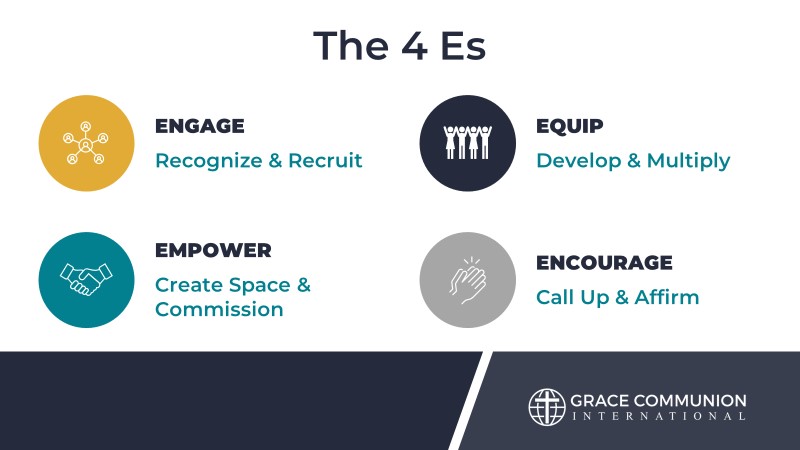
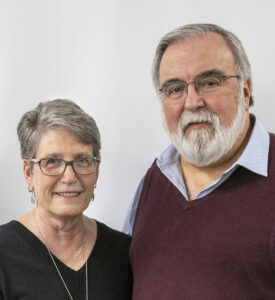 By Tim Sitterley, US Regional Director
By Tim Sitterley, US Regional Director
 By Anthony Mullins, US Regional Director
By Anthony Mullins, US Regional Director
 By Ceeja Malmkar, MTC Coordinator, Surrey Hills, OK
By Ceeja Malmkar, MTC Coordinator, Surrey Hills, OK
 By Alvaro Palacio, Pastor, Toronto Canada
By Alvaro Palacio, Pastor, Toronto Canada
